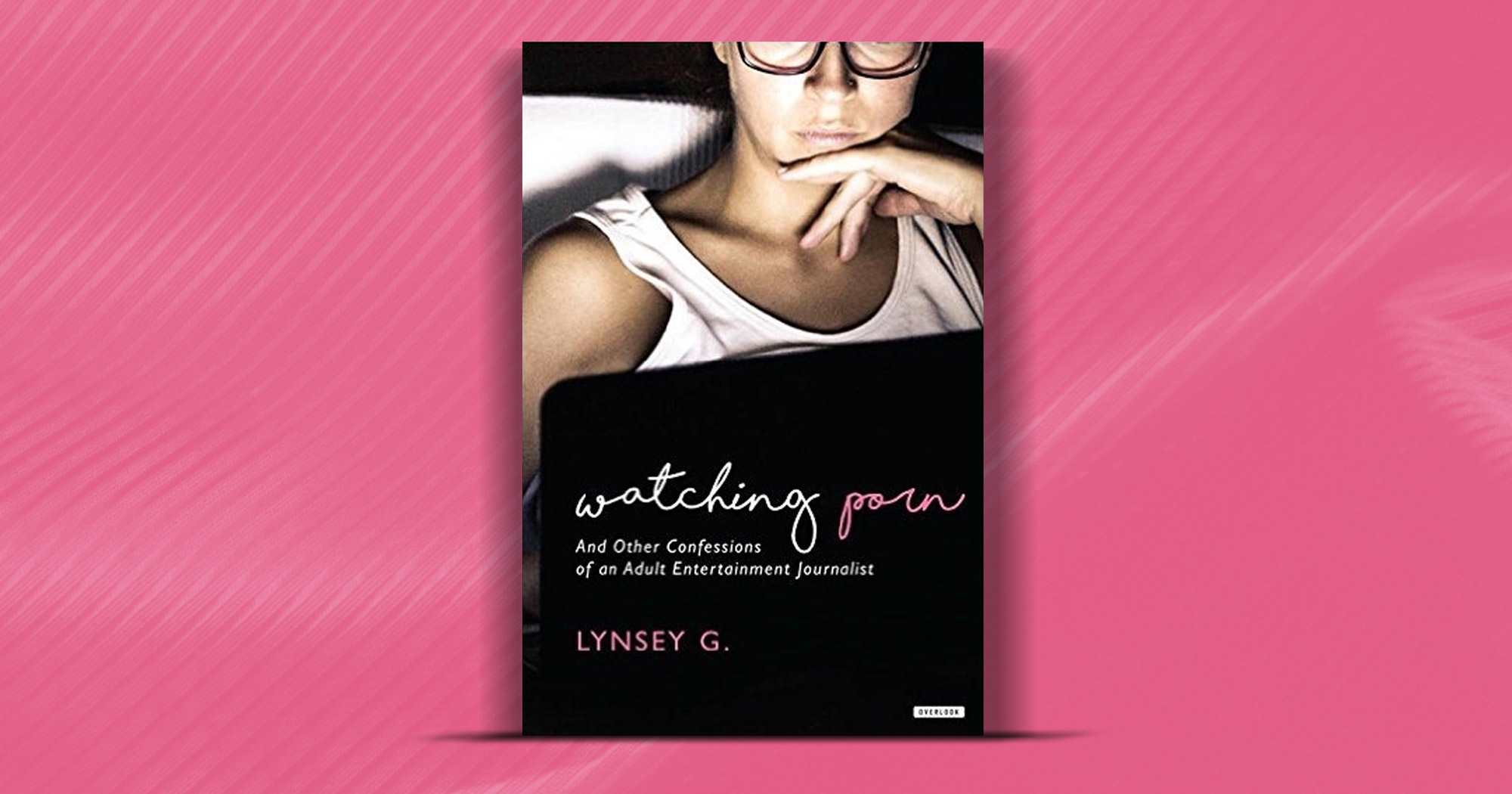Ethical Porn with Lynsey G.

It’s one of the paradoxes of contemporary American sexuality: nobody seems to want to talk about porn; everybody seems to be watching it. Sharp and hilarious feminist writer Lynsey G. took note of this gulf between consumption and confession—among the other absurdities that surround the oft-maligned porn industry—when she began writing about porn as a full-time gig.
Lynsey’s fascinating memoir, Watching Porn, unpacks this and other conundrums, all of which keep the porn industry from reaching its sex-positive potentials. Queer and feminist theories factor in alongside peeks into industry events and personalities; the result is both nuanced and alluring.
What do you wish that everyone knew, or understood, about porn?
![Lynsey G., photo by Jayel Draco. 'Few of us ever get the chance to really open up and talk about [porn].' Lynsey](https://www.forewordreviews.com/media/newsletter-art/57602-w250.jpg)
Lynsey G., photo by Jayel Draco. 'Few of us ever get the chance to really open up and talk about [porn].'
I think it’s important for consumers of pornography to remember that porn is a product. It’s been produced for consumption by the general public, just like any other form of media. Sure, there are differences between porn and, say, a big-budget Hollywood film insofar as budget, marketing, and what the performers actually do on set, but the same basic truths apply: The actors are acting, the footage is edited to suit a purpose, and there is an entire industry working on similar media with the sole purpose of selling it.
Pornography often gets blamed for all manner of social ills in America, while at the same time being expected to live up to unrealistic expectations with regards to sex education, moral policing, and setting some sort of cultural bar with regards to sexual practices—all while most of us watch it for free. It’s important to remember that porn isn’t a free service, or a gift from the gods—it’s a product made by people, for people to purchase. Consume it as such.
What is the best way for an ethical porn consumer to address some of the concerns you raise (eg., around choice and respect in porn)?
The best thing that someone who’s concerned about the ethics in porn can do is spend a little more time researching the porn they watch. It might take you ten minutes to find what you like and, um, get the job done. But consider taking another ten minutes before or after to learn more about it. Google is your friend! Many performers, production companies, and directors have strong social media presences—you can learn lots about the people who make your porn and what their values are (and even purchase smut directly from them).
Many companies that focus on ethical porn have spoken about their practices in interviews and articles on the topic. There are great resources all over the Internet for people who want to learn about how porn is made and whether it meets their standards; all it takes is some time and a few search terms to get the ball rolling. Heck, if you don’t know where to start, just Google “ethical porn.” There is SO much information out there on this topic alone!
Can you expand a little on the importance of vehicles like The Crash Pad and queer porn?
Mainstream porn has become such an institution in America that many of us have a hard time imagining sex that looks substantially different from what we’ve come to expect from it. We’re used to seeing athletic, white, cisgender bodies going at it in a predictable set of maneuvers, and because that’s what many of us have been raised on, that’s what counts as “sex” in our cultural understanding.
But meanwhile, queer people have been having sex that looks wildly different from what we see in most porn all along, it’s just that many of us haven’t had a window into what it looks like on a large scale. That’s where queer porn comes in! The kinds of things that queer folks have been getting up to are now available to a lager audience via queer porn, which makes for a vastly expanded revisualization of what “sex” can look like.
Porn like the Crash Pad series from Pink & White Productions features performers of diverse body types, racial and ethnic backgrounds, gender identities and presentations, kinkiness levels, and more. Not only is their representation as sexy and sexual beings deeply important for their communities, but it’s just as important for the others, who don’t need to be boxed in by what a bunch of executives at more mainstream porn companies decided sex should look like. It’s a step toward sexual freedom! Yippie!
When people find out that you write about porn, do they become prone to oversharing?
Oh my goodness, yes. Well, not everybody. Some people clam right up. But I’ve been on the receiving end of many an earful of information about people’s private viewing habits, favorite performers, and much more. To be honest, I often enjoy the oversharing.
Porn viewing is nearly universal these days, but few of us ever get the chance to really open up and talk about it. That’s strange, if you think about it: We share some of our most vulnerable and formative moments with pornography but with nobody else! So I’m usually glad to be able to listen in on the thoughts, experiences, and sometimes revelations of people who feel comfortable discussing it with me. That being said, of course, sometimes it can go a bit too far. I’m not actually a sex therapist or counselor, and although I like to help where I can, I’m not comfortable being put in that position.
Can you tell us about the experience of working with Overlook to bring Watching Porn to press?
The process of bringing Watching Porn into being was a long one! I entered into talks with Overlook’s publisher, Peter Mayer, way back in 2012 when he attended the opening of my art show, “Consent,” at apexart, and it’s been a winding journey to press ever since.
I don’t have an agent, and I wasn’t even looking for a book deal, necessarily, when Peter and I met, but he was so interested in what I had to say that we forged ahead and made a book anyway! I cannot possibly thank Overlook enough for being willing to take on an unproven author like myself on such a controversial topic, and I think it’s a testament to the importance of independent publishing that we’ve gotten such a warm reception to this book so far.
What projects are you working on next?
Right now, Watching Porn is the only nonfiction book I’ve got planned, but I’m a perennially curious individual who loves to write, so that might change! In the meantime, I’ co-founded an independent publishing company of my own, Oneshi Press, with my partner, visual artist Jayel Draco.
We’re funding ourselves using Patreon, a subscription-based crowdfunding site, and inviting our patrons into the creation process via live-streams and exclusive downloads. One of our first projects is a graphic novel I wrote about an independent porn star named Tracy Queen! Our first art book, Children of Gaia: The Great Nations of Rendaraia, is a fantasy art book that will be available in mid-April.

Michelle Anne Schingler is the managing editor at Foreword Reviews. You can follow her on Twitter @mschingler or e-mail her at mschingler@forewordreviews.com.
Michelle Anne Schingler
